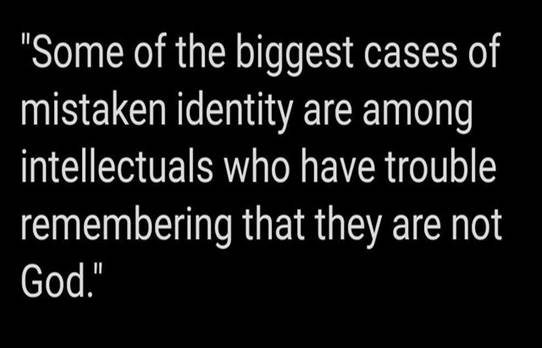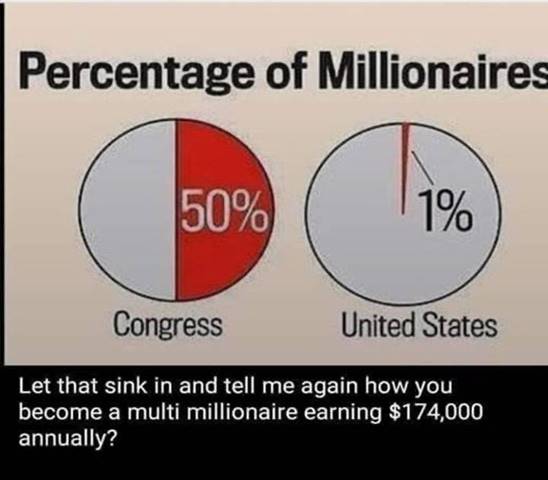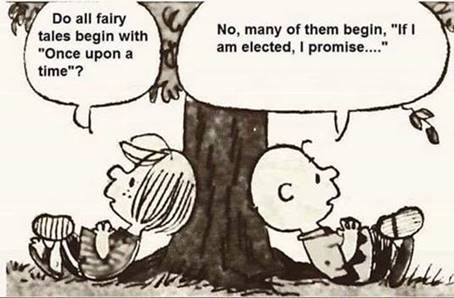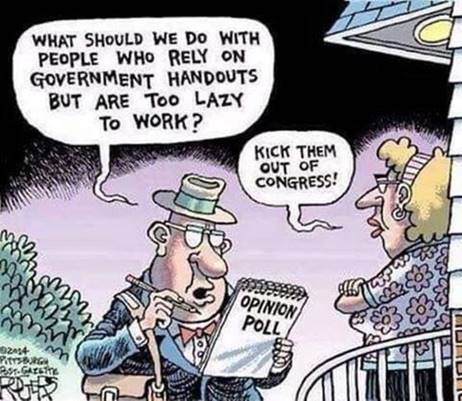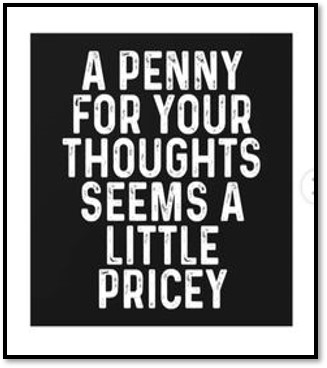Posts for: dtucker300
Apr 27, 2024 22:16:52 #
(Main)
Day 13: What Is Inflation?
https://www.prageru.com/video/what-is-inflation
Inflation isn’t new.
This man-made disaster has bedeviled civilizations at least since Ancient Rome.
In order to pay for his extravagant expenses, the first-century Roman emperor Nero debased the Roman currency, the denarius. How did he do it? By replacing silver, which was valuable, with copper, which was not.
And that was just the beginning.
Rome’s corrupt governments debased the coinage on a regular basis. By the fourth century, the price of wheat was two million times higher than it had been in the mid-second century. By the fifth century, Rome was finished—overrun not by barbarians, but by inflation.
In the sixteenth century, English King Henry VIII did essentially the same thing with England’s coinage to pay for his wars, divorces, and debaucheries. In what became known as the Great Debasement, food prices soared. Ultimately, Henry left it to his daughter, Queen Elizabeth I, to clean things up by issuing new, high-quality coinage, setting the stage for the emergence of England as a great power.
The Continental Congress of the American revolution tried to print its way out of its money problems by paying soldiers with paper money. The first US currency, the Continental dollar, was so over-printed that it became “confetti”, collapsing into hyperinflationary oblivion. Alexander Hamilton, the first treasury secretary, saved the day by linking the US dollar to gold.
Figures like Elizabeth I and Alexander Hamilton are rare. These stories usually end badly. In the 1920s, rampant money printing by the Weimar Republic in Germany led to hyperinflation, economic collapse, and ultimately, the rise of Adolf Hitler. Argentina, once the most prosperous country in South America, has never really recovered from its wild money printing in the 1950s. And Zimbabwe, now one of Africa’s poorest and most corrupt nations, is infamous for its one hundred trillion dollar bill.
Look for the source of a society’s collapse, and you’ll usually find the i-word.
So what exactly is inflation?
There are two types: non-monetary and monetary.
When a hurricane slams the Gulf of Mexico, interrupting fuel production, the price of gasoline rises. This is non-monetary inflation—the rise of prices due to some external event. Over time, the market recovers and prices normalize.
Monetary inflation is something entirely different. It’s the distortion of prices that occurs when money loses value. It’s that feeling that something isn’t right. Why is my weekly grocery bill, which used to be $100, now $200?
Because your money is losing value. It’s not that bananas have suddenly become more valuable. It’s that your money has become less valuable.
This can happen rapidly—as we’ve seen since 2021—or slowly over time. For example, in 1970, a can of Coke cost a dime; a Big Mac 65 cents. Fifty years later, a Big Mac is five bucks, and you’d be lucky to get a soda out of a vending machine for two dollars. Obviously, these products haven’t changed. It’s the dollar that’s worth far less.
This slow-motion devaluation of the dollar is why young people today can barely make rent when, years ago, their parents, who made far fewer dollars, could buy a house. Their dollars were worth much more.
If you feel c***ted by that, I don’t blame you. You have been.
So where should your anger be directed? You can start with our 37th president, Richard Nixon. The worst thing he did was not Watergate. It was taking us off the gold standard in 1971, which Alexander Hamilton had put in place two centuries prior. This allowed the federal government to print dollars more or less at will.
Had the US dollar stayed connected to the gold standard, it’s estimated that today’s economy would be at least 50% larger than it is. In a universe without inflation, you could buy that house.
So what is the dollar’s value linked to now, if not gold? Nothing more than faith—the faith that the money you have today will be worth the same tomorrow, next year, and the year after. But it becomes harder and harder to maintain that faith as the U.S. government prints trillions of dollars to pay for its outrageous spending.
The most devastating effect of inflation is its impact on social trust. Money, after all, was invented to enable trade between strangers by providing a mutually agreed-upon unit of value. It is a facilitator of trust. Without that trust, trade, social relationships, and life as we know it ultimately unravel.
So are we doomed to this fate? No. Just like England wasn’t and America wasn’t at its founding.
We must once again link the dollar to a stable anchor; gold or some other trustworthy standard.
The time to start that debate is now.
Or we will go the way of Rome. You can bet your bottom denarius on it.
I’m Steve Forbes, co-author of Inflation: What It Is, Why It's Bad, and How to Fix It, for Prager University.
https://www.prageru.com/video/what-is-inflation
Inflation isn’t new.
This man-made disaster has bedeviled civilizations at least since Ancient Rome.
In order to pay for his extravagant expenses, the first-century Roman emperor Nero debased the Roman currency, the denarius. How did he do it? By replacing silver, which was valuable, with copper, which was not.
And that was just the beginning.
Rome’s corrupt governments debased the coinage on a regular basis. By the fourth century, the price of wheat was two million times higher than it had been in the mid-second century. By the fifth century, Rome was finished—overrun not by barbarians, but by inflation.
In the sixteenth century, English King Henry VIII did essentially the same thing with England’s coinage to pay for his wars, divorces, and debaucheries. In what became known as the Great Debasement, food prices soared. Ultimately, Henry left it to his daughter, Queen Elizabeth I, to clean things up by issuing new, high-quality coinage, setting the stage for the emergence of England as a great power.
The Continental Congress of the American revolution tried to print its way out of its money problems by paying soldiers with paper money. The first US currency, the Continental dollar, was so over-printed that it became “confetti”, collapsing into hyperinflationary oblivion. Alexander Hamilton, the first treasury secretary, saved the day by linking the US dollar to gold.
Figures like Elizabeth I and Alexander Hamilton are rare. These stories usually end badly. In the 1920s, rampant money printing by the Weimar Republic in Germany led to hyperinflation, economic collapse, and ultimately, the rise of Adolf Hitler. Argentina, once the most prosperous country in South America, has never really recovered from its wild money printing in the 1950s. And Zimbabwe, now one of Africa’s poorest and most corrupt nations, is infamous for its one hundred trillion dollar bill.
Look for the source of a society’s collapse, and you’ll usually find the i-word.
So what exactly is inflation?
There are two types: non-monetary and monetary.
When a hurricane slams the Gulf of Mexico, interrupting fuel production, the price of gasoline rises. This is non-monetary inflation—the rise of prices due to some external event. Over time, the market recovers and prices normalize.
Monetary inflation is something entirely different. It’s the distortion of prices that occurs when money loses value. It’s that feeling that something isn’t right. Why is my weekly grocery bill, which used to be $100, now $200?
Because your money is losing value. It’s not that bananas have suddenly become more valuable. It’s that your money has become less valuable.
This can happen rapidly—as we’ve seen since 2021—or slowly over time. For example, in 1970, a can of Coke cost a dime; a Big Mac 65 cents. Fifty years later, a Big Mac is five bucks, and you’d be lucky to get a soda out of a vending machine for two dollars. Obviously, these products haven’t changed. It’s the dollar that’s worth far less.
This slow-motion devaluation of the dollar is why young people today can barely make rent when, years ago, their parents, who made far fewer dollars, could buy a house. Their dollars were worth much more.
If you feel c***ted by that, I don’t blame you. You have been.
So where should your anger be directed? You can start with our 37th president, Richard Nixon. The worst thing he did was not Watergate. It was taking us off the gold standard in 1971, which Alexander Hamilton had put in place two centuries prior. This allowed the federal government to print dollars more or less at will.
Had the US dollar stayed connected to the gold standard, it’s estimated that today’s economy would be at least 50% larger than it is. In a universe without inflation, you could buy that house.
So what is the dollar’s value linked to now, if not gold? Nothing more than faith—the faith that the money you have today will be worth the same tomorrow, next year, and the year after. But it becomes harder and harder to maintain that faith as the U.S. government prints trillions of dollars to pay for its outrageous spending.
The most devastating effect of inflation is its impact on social trust. Money, after all, was invented to enable trade between strangers by providing a mutually agreed-upon unit of value. It is a facilitator of trust. Without that trust, trade, social relationships, and life as we know it ultimately unravel.
So are we doomed to this fate? No. Just like England wasn’t and America wasn’t at its founding.
We must once again link the dollar to a stable anchor; gold or some other trustworthy standard.
The time to start that debate is now.
Or we will go the way of Rome. You can bet your bottom denarius on it.
I’m Steve Forbes, co-author of Inflation: What It Is, Why It's Bad, and How to Fix It, for Prager University.
Apr 27, 2024 01:07:12 #
(Main)
Iran’s Nightmares
April 25, 2024
Victor Davis Hanson
Details of the recent limited Israeli retaliatory strike against Iranian anti-aircraft missile batteries at Isfahan are still sketchy. But nonetheless, we can draw some conclusions.
Israel’s small volley of missiles hit their intended targets, to the point of zeroing in on the very launchers designed to stop such incoming ordnance.
The target was near the Natanz enrichment facility. That proximity was by design. Israel showed Iran it could take out the very anti-missile battery designed to thwart an attack on its nearby nuclear facility.
The larger message sent to the world was that Israel could send a retaliatory barrage at Iranian nuclear sites with reasonable assurances that the incoming attacks could not be stopped. By comparison, Iran’s earlier attack on Israel was much greater and more indiscriminate. It was also a huge flop, with an estimated 99 percent of the more than 320 drones, cruise missiles, and ballistic missiles failing to hit their planned targets.
Moreover, it was reported that more than 50 percent of Iran’s roughly 115-120 ballistic missiles failed at launch or malfunctioned in flight.
Collate these facts, and it presents a disturbing corrective to Iran’s non-stop boasts of soon possessing a nuclear arsenal that will obliterate the Jewish state.
Consider further the following nightmarish scenarios: Were Iranian nuclear-tipped missiles ever launched at Israel, they could pass over, in addition to Syria and Iraq, either Saudi Arabia, Jordan, the West Bank, Gaza, or all four. In the cases of Jordan and Saudi Arabia, such trajectories would constitute an act of war, especially considering that some of Iran’s recent aerial barrages were intercepted and destroyed over Arab territory well before they reached Israel.
Iran’s strike prompted Arab nations, the US, the UK, and France to work in concert to destroy almost all of Iran’s drones. For Iran, that is a premonition of the sort of sophisticated aerial opposition it might face if it ever decided to stage a nuclear version.
Even if half of Iran’s ballistic missiles did launch successfully, only a handful apparently neared their intended targets—in sharp contrast to Israel’s successful attack on Iranian missile batteries. Is it thus conceivable that any Iranian-nuclear-tipped missile launched toward Israel might pose as great a threat to Iran itself or its neighbors as to Israel?
And even if such missiles made it into the air and even if they successfully traversed Arab airspace, there is still an overwhelming chance they would be neutralized before detonating above Israel.
Any such launch would warrant an immediate Israeli response. And the incoming bombs and missiles would likely have a 100 percent certainty of evading Iran’s countermeasures and hitting their targets.
Now that the soil of both Iran and Israel is no longer sacred and immune from attack, the mystique of the Iranian nuclear threat has dissipated.
It should be harder for the theocracy to shake down Western governments for hostage bribes, sanctions relief, and Iran-deal giveaways on the implied threat of Iran successfully nuking the Jewish state.
The new reality is that Iran has goaded an Israel that has numerous nuclear weapons and dozens of nuclear-tipped missiles in hardened silos and on submarines. Tehran has zero ability to stop any of these missiles or sophisticated fifth-generation Israeli aircraft armed with nuclear bombs and missiles.
Iran must now fear that if it launched 2-3 nuclear missiles, there would be overwhelming odds that they would either fail at launch, go awry in the air, implode inside Iran, be taken down over Arab territory by Israel’s allies, or be knocked down by the tripartite Israel anti-missile defense system.
Add it all up, and the Iranian attack on Israel seems a historic blunder. It showed the world the impotence of an Iranian aerial assault at the very time it threatens to go nuclear. It revealed that an incompetent Iran may be as much a threat to itself as to its enemies. It opened up a new chapter in which its own soil, thanks to its attack on Israel, is no longer off limits to any Western power.
Its failure to stop a much smaller Israel response, coupled with the overwhelming success of Israel and its allies in stopping a much larger Iranian attack, reminds the Iranian autocracy that its shrill rhetoric is designed to mask its impotence and to hide its own vulnerabilities from its enemies.
And the long-suffering Iranian people?
The t***h will come out that its own theocracy hit the Israeli homeland with negligible results and earned a successful, though merely demonstrative, Israeli response in return.
So Iranians will learn their homeland is now vulnerable and, for the future, no longer off limits.
And they will conclude that Israel has more effective allies than Iran and that their own ballistic missiles may be more suicidal than homicidal.
As a result, they may conclude that the real enemies of the Iranian nation are not the Jewish people of Israel after all, but their own unhinged Islamist theocrats.
April 25, 2024
Victor Davis Hanson
Details of the recent limited Israeli retaliatory strike against Iranian anti-aircraft missile batteries at Isfahan are still sketchy. But nonetheless, we can draw some conclusions.
Israel’s small volley of missiles hit their intended targets, to the point of zeroing in on the very launchers designed to stop such incoming ordnance.
The target was near the Natanz enrichment facility. That proximity was by design. Israel showed Iran it could take out the very anti-missile battery designed to thwart an attack on its nearby nuclear facility.
The larger message sent to the world was that Israel could send a retaliatory barrage at Iranian nuclear sites with reasonable assurances that the incoming attacks could not be stopped. By comparison, Iran’s earlier attack on Israel was much greater and more indiscriminate. It was also a huge flop, with an estimated 99 percent of the more than 320 drones, cruise missiles, and ballistic missiles failing to hit their planned targets.
Moreover, it was reported that more than 50 percent of Iran’s roughly 115-120 ballistic missiles failed at launch or malfunctioned in flight.
Collate these facts, and it presents a disturbing corrective to Iran’s non-stop boasts of soon possessing a nuclear arsenal that will obliterate the Jewish state.
Consider further the following nightmarish scenarios: Were Iranian nuclear-tipped missiles ever launched at Israel, they could pass over, in addition to Syria and Iraq, either Saudi Arabia, Jordan, the West Bank, Gaza, or all four. In the cases of Jordan and Saudi Arabia, such trajectories would constitute an act of war, especially considering that some of Iran’s recent aerial barrages were intercepted and destroyed over Arab territory well before they reached Israel.
Iran’s strike prompted Arab nations, the US, the UK, and France to work in concert to destroy almost all of Iran’s drones. For Iran, that is a premonition of the sort of sophisticated aerial opposition it might face if it ever decided to stage a nuclear version.
Even if half of Iran’s ballistic missiles did launch successfully, only a handful apparently neared their intended targets—in sharp contrast to Israel’s successful attack on Iranian missile batteries. Is it thus conceivable that any Iranian-nuclear-tipped missile launched toward Israel might pose as great a threat to Iran itself or its neighbors as to Israel?
And even if such missiles made it into the air and even if they successfully traversed Arab airspace, there is still an overwhelming chance they would be neutralized before detonating above Israel.
Any such launch would warrant an immediate Israeli response. And the incoming bombs and missiles would likely have a 100 percent certainty of evading Iran’s countermeasures and hitting their targets.
Now that the soil of both Iran and Israel is no longer sacred and immune from attack, the mystique of the Iranian nuclear threat has dissipated.
It should be harder for the theocracy to shake down Western governments for hostage bribes, sanctions relief, and Iran-deal giveaways on the implied threat of Iran successfully nuking the Jewish state.
The new reality is that Iran has goaded an Israel that has numerous nuclear weapons and dozens of nuclear-tipped missiles in hardened silos and on submarines. Tehran has zero ability to stop any of these missiles or sophisticated fifth-generation Israeli aircraft armed with nuclear bombs and missiles.
Iran must now fear that if it launched 2-3 nuclear missiles, there would be overwhelming odds that they would either fail at launch, go awry in the air, implode inside Iran, be taken down over Arab territory by Israel’s allies, or be knocked down by the tripartite Israel anti-missile defense system.
Add it all up, and the Iranian attack on Israel seems a historic blunder. It showed the world the impotence of an Iranian aerial assault at the very time it threatens to go nuclear. It revealed that an incompetent Iran may be as much a threat to itself as to its enemies. It opened up a new chapter in which its own soil, thanks to its attack on Israel, is no longer off limits to any Western power.
Its failure to stop a much smaller Israel response, coupled with the overwhelming success of Israel and its allies in stopping a much larger Iranian attack, reminds the Iranian autocracy that its shrill rhetoric is designed to mask its impotence and to hide its own vulnerabilities from its enemies.
And the long-suffering Iranian people?
The t***h will come out that its own theocracy hit the Israeli homeland with negligible results and earned a successful, though merely demonstrative, Israeli response in return.
So Iranians will learn their homeland is now vulnerable and, for the future, no longer off limits.
And they will conclude that Israel has more effective allies than Iran and that their own ballistic missiles may be more suicidal than homicidal.
As a result, they may conclude that the real enemies of the Iranian nation are not the Jewish people of Israel after all, but their own unhinged Islamist theocrats.
Apr 27, 2024 00:52:54 #
(Main)
https://www.youtube.com/watch?v=2It1VmB3qFA
Biden Harris 2024 - Satirical Ad
My comical take on a recent Joe Biden and Kamala Harris 2024 political ad. This is what I think it should say. Join my channel to get access to perks: https://www.youtube.com/channel/UCQKPxBI3hiPPEyg2GUFvp6w/join
www.youtube.com
Biden Harris 2024 - Satirical Ad
My comical take on a recent Joe Biden and Kamala Harris 2024 political ad. This is what I think it should say. Join my channel to get access to perks: https://www.youtube.com/channel/UCQKPxBI3hiPPEyg2GUFvp6w/join
www.youtube.com
Apr 26, 2024 23:06:40 #
(Main)
Day 12: The Progressive Income Tax: A Tale of Three Brothers
https://www.prageru.com/video/the-progressive-income-tax-a-tale-of-three-brothers
Once upon a time, there were three brothers, triplets, named Tom, Dick, and Harry Class. They were raised in the same home, with the same parents, had the same IQ, same sk**ls and same opportunities. Each was married and had two children. They were all carpenters making $25 per hour.
While they were very similar in all these respects, they had different priorities.
For example, Tom, chose to work 20 hours per week, while his brother, Dick worked 40 hours and Harry 60.
It should also be noted that Harry's wife worked full time as an office manager for a salary of $50,000. Dick's wife sold real estate part time 10 hours a week and made $25,000 per year. Tom's wife did not work.
Tom and Dick spent all of their family income. Since they paid into Social Security they figured, they didn't need to save for retirement. Harry and his wife, on the other hand, had, over many years, put away money each month and invested it in stocks and bonds.
Here's how it worked out: Tom made $25,000 a year, Dick and his wife made $75,000 and Harry and his wife, $150,000.
When a new housing development opened up in their community, the brothers decided to buy equally-priced homes on the same private street.
One day the brothers decided to pool their funds for the purpose of improving their street. Concerned about crime and safety, and wanting a more attractive setting for their homes, the three families decided to install a security gate at the street's entrance; repave the street's surface; and enhance the lighting and landscaping. The work was done for a total cost of $30,000.
Harry assumed they would divide the bill three ways, each brother paying $10,000. But Tom and Dick objected. "Why should we pay the same as you?" they said. "You make much more money than we do." Harry was puzzled. "What does that have to do with anything?" he asked. "My family makes more money because my wife and I work long hours, and because we have saved some of the money we've earned to make additional money from investments. Why should we be penalized for that?"
"Harry, you can work and save all you like" Tom countered. "But my wife and I want to enjoy ourselves now, not 25 years from now."
"Fine, Tom. Do what you want. It's a free country. But why should I have to pay for that?
"I can't believe you're being so... unbrotherly," Tom argued. "You have a lot of money and I don't. I thought you'd be more generous."
At this point, Dick, the peacemaker in the family, entered the conversation. "I've got an idea," Dick said. "Our combined income is $250,000, and $30,000 is 12 percent of that amount. Why don't we each pay that percentage of our income? Under that formula, Tom would pay $3,000, I would pay $9,000, and Harry would pay $18,000."
"I have a much better idea," said Tom. "And one that's fairer than what you're proposing."
Dick and Harry turned to Tom.
"Harry should pay $23,450; Dick, you should pay $6,550; and I will pay nothing."
To Dick this sounded completely arbitrary, and not really fair. But it did have one big plus. His share would be $2,450 less under Tom's formula than under his own. So, he decided to be silent.
Harry, however, was stunned. "You want me to pay almost 80% of the bill despite the fact that each of us is receiving the exact same benefits? Where did you get such a crazy idea?"
"From no less an authority than the U.S. government," Tom responded, as he pulled out a gray booklet.
"It's all right here in the IRS tax tables. This is the progressive income tax system all U.S. taxpayers live under, and I don't see we should be any different. In fact, I believe all future improvements should be paid in this way."
"Works for me," said Dick. So, by a v**e of two to one, the cost of the street improvements was divided as Tom had proposed, even though they benefited equally, and even though the reason Harry had more money was that he and his wife had worked many more hours than his brothers and their wives, and saved some of what they had earned instead of spending it all.
Tom and Dick lived happily ever after with their new arrangement. Harry grumbled a lot, but whenever he complained his brothers called him greedy and selfish.
The end.
https://www.prageru.com/video/the-progressive-income-tax-a-tale-of-three-brothers
Once upon a time, there were three brothers, triplets, named Tom, Dick, and Harry Class. They were raised in the same home, with the same parents, had the same IQ, same sk**ls and same opportunities. Each was married and had two children. They were all carpenters making $25 per hour.
While they were very similar in all these respects, they had different priorities.
For example, Tom, chose to work 20 hours per week, while his brother, Dick worked 40 hours and Harry 60.
It should also be noted that Harry's wife worked full time as an office manager for a salary of $50,000. Dick's wife sold real estate part time 10 hours a week and made $25,000 per year. Tom's wife did not work.
Tom and Dick spent all of their family income. Since they paid into Social Security they figured, they didn't need to save for retirement. Harry and his wife, on the other hand, had, over many years, put away money each month and invested it in stocks and bonds.
Here's how it worked out: Tom made $25,000 a year, Dick and his wife made $75,000 and Harry and his wife, $150,000.
When a new housing development opened up in their community, the brothers decided to buy equally-priced homes on the same private street.
One day the brothers decided to pool their funds for the purpose of improving their street. Concerned about crime and safety, and wanting a more attractive setting for their homes, the three families decided to install a security gate at the street's entrance; repave the street's surface; and enhance the lighting and landscaping. The work was done for a total cost of $30,000.
Harry assumed they would divide the bill three ways, each brother paying $10,000. But Tom and Dick objected. "Why should we pay the same as you?" they said. "You make much more money than we do." Harry was puzzled. "What does that have to do with anything?" he asked. "My family makes more money because my wife and I work long hours, and because we have saved some of the money we've earned to make additional money from investments. Why should we be penalized for that?"
"Harry, you can work and save all you like" Tom countered. "But my wife and I want to enjoy ourselves now, not 25 years from now."
"Fine, Tom. Do what you want. It's a free country. But why should I have to pay for that?
"I can't believe you're being so... unbrotherly," Tom argued. "You have a lot of money and I don't. I thought you'd be more generous."
At this point, Dick, the peacemaker in the family, entered the conversation. "I've got an idea," Dick said. "Our combined income is $250,000, and $30,000 is 12 percent of that amount. Why don't we each pay that percentage of our income? Under that formula, Tom would pay $3,000, I would pay $9,000, and Harry would pay $18,000."
"I have a much better idea," said Tom. "And one that's fairer than what you're proposing."
Dick and Harry turned to Tom.
"Harry should pay $23,450; Dick, you should pay $6,550; and I will pay nothing."
To Dick this sounded completely arbitrary, and not really fair. But it did have one big plus. His share would be $2,450 less under Tom's formula than under his own. So, he decided to be silent.
Harry, however, was stunned. "You want me to pay almost 80% of the bill despite the fact that each of us is receiving the exact same benefits? Where did you get such a crazy idea?"
"From no less an authority than the U.S. government," Tom responded, as he pulled out a gray booklet.
"It's all right here in the IRS tax tables. This is the progressive income tax system all U.S. taxpayers live under, and I don't see we should be any different. In fact, I believe all future improvements should be paid in this way."
"Works for me," said Dick. So, by a v**e of two to one, the cost of the street improvements was divided as Tom had proposed, even though they benefited equally, and even though the reason Harry had more money was that he and his wife had worked many more hours than his brothers and their wives, and saved some of what they had earned instead of spending it all.
Tom and Dick lived happily ever after with their new arrangement. Harry grumbled a lot, but whenever he complained his brothers called him greedy and selfish.
The end.
Apr 26, 2024 02:15:58 #
(Main)
Biden: How Many Times Does Trump Have to Prove We Can't Be Trusted?
by: Matt Palumbo April 24, 2024
In his latest gaffe Joe Biden actually spoke the t***h for once.
While attempting to slam Donald Trump for a******n restrictions placed following the overturning of Roe v. Wade, Biden accidentally used that as proof as “we” can’t be trusted.
“Folks, in a sense, I don’t know why we’re surprised by Trump. How many times does he have to prove we can’t be trusted?” Biden asked.
Watch below:
https://bongino.com/biden-how-many-times-does-trump-have-to-prove-we-cant-be-trusted
by: Matt Palumbo April 24, 2024
In his latest gaffe Joe Biden actually spoke the t***h for once.
While attempting to slam Donald Trump for a******n restrictions placed following the overturning of Roe v. Wade, Biden accidentally used that as proof as “we” can’t be trusted.
“Folks, in a sense, I don’t know why we’re surprised by Trump. How many times does he have to prove we can’t be trusted?” Biden asked.
Watch below:
https://bongino.com/biden-how-many-times-does-trump-have-to-prove-we-cant-be-trusted
Apr 26, 2024 02:01:52 #
(Main)
federally indicted mattoid wrote:
That was good for a belly laugh.

Have a nice evening dtuck.

Have a nice evening dtuck.
This is even funnier.
Shocking Turn-Out at Biden Event
By Pamela Geller - on April 25, 2024
81 million v**es! More like 81 million lies.
Wow, Biden’s crowd in Tampa seems very enthusiastic.
80 million v**es my arse! pic.twitter.com/dmIhv5BeGw
— I Meme Therefore I Am 🇺🇸 (@ImMeme0) April 23, 2024
Vs.
Trump this morning before his Kafka-esque trial:
WATCH: Trump Gets HUGE Welcome From NYC Construction Workers, ‘WE LOVE TRUMP!” “USA! USA!”
https://gellerreport.com/2024/04/watch-trump-gets-huge-welcome-from-nyc-construction-workers-we-love-trump-usa-usa.html/
Apr 25, 2024 23:22:29 #
(Main)
Largest Christian University In America Gets Fined $37 Million. Coincidence Or Targeted Attack?
Posted on Tuesday, April 23, 2024
A dust storm of political madness is brewing in Phoenix as Grand Canyon University faces the continued threats of Education Secretary Miguel Cardona.
Christians have watched as the Biden administration attacks biblical views left and right, with a particularly vehement disregard for the sanctity of life and marriage. As such, it can’t be too surprising that Cardona, a part of this l*****t administration, has vowed to shut down America’s largest Christian university.
In late October, Grand Canyon University was hit with “a $37.7 million fine brought by the federal government over allegations that it lied to students about the cost of its programs,” The Associated Press reported—an accusation that GCU President Brian Mueller described as “ridiculous.”
Around the same time, Liberty University, America’s second-largest Christian university, also was fined $37 million “over alleged underreporting of crimes.”
Grand Canyon University appealed its fine in November even though a hearing is not expected until January 2025. But the question Mueller has is one of integrity. Is this genuine consideration for the well-being of students, or is this a targeted attack against religious institutions?
“It’s interesting, isn’t it, that the two largest Christian universities in the country, this one and Liberty University, are both being fined almost the identical amount at almost the identical time?” GCU’s president speculated in a speech. “Now is there a cause and effect there? I don’t know. But it’s a fact.”
The House Appropriations Committee held a hearing early this month about the Biden administration’s decision to “crack down on GCU and other universities like it.”
During the proceedings, Cardona and Rep. Rosa DeLauro, D-Conn., made their disapproval of Grand Canyon University and similar universities obvious. “[W]e are cracking down not only to shut them down, but to send a message to not prey on students,” Cardona said.
Supporters of GCU agree that the fine seems unprecedented and motivated by ideological bias. American Principles Project Policy Director Jon Schweppe said: “The federal government’s education agenda is punishing schools that do not conform to their progressive ideology. It’s time we take a stand against this egregious abuse of power.”
Another conservative think tank, the Goldwater Institute, sued the Education Department for “refusing to turn over” public documents “that explain why” the agency fined GCU. The goal of the lawsuit is to unmask the reason behind the fine.
“With its motto of ‘private, Christian, affordable’ and its track record of graduating students into high-demand and high-paying jobs, GCU is a success story by any metric. And it stands apart from universities across the country that are facing declining enrollment, that are indoctrinating students with radical politics, and that are under attack for failing to defend the First Amendment,” the Goldwater Institute wrote. “So then why are the feds targeting GCU, a popular university that seems to be doing everything right? That’s exactly what we’re going to find out.”
Although immense uncertainty still surrounds this case, Grand Canyon University’s president took the time to share with The Washington Stand how his staff, faculty, and students are faring and how believers everywhere can help.
Mueller emphasized that GCU has faced various issues over the years. But despite the government’s action, he said he wanted people to know that “interestingly enough … it has had zero impact on anything that we’re doing.”
He continued: “The enrollments are just continuing to grow … [and] the morale is very high in terms of our faculty and staff. The campus is extremely vibrant. I mean, the students absolutely love this place. They’re extremely loyal to [the school] and so we just keep marching through it.”
And although the fine that Grand Canyon University was dealt by the Education Department is “a problem,” Mueller said, he is thankful that GCU remains optimistic.
Christian “mission, not politics, is our motivation and it is our hope,” he told The Washington Stand. As a university, Mueller explained, GCU exists to “pour into” the community around it.
“[O]ur reach into the neighborhood and caring for disadvantaged populations has been a way to live out our faith” in a way “that has risen above … political divide,” Mueller said. Ultimately, with support from “both sides of the aisle” in Arizona, he noted, “all the issues we have are with a very small number of people in Washington D.C.”
“We encourage people to be involved politically and v**e,” Mueller said, adding: “But our faith will stand above the politics always, and our politics will never become our religion.”
Because, for “many people in our country today, their politics have become their religion, and that’s when things … go really bad in our society,” he said.
Mueller pointed out that Grand Canyon University is “trying to be an example of a Christian community that can rise above those things and focus on helping people” through service, as Scripture calls believers to do.
Mueller concluded with a request for prayer as the university works through these troubling times, and for “the hearts of certain people in Washington, D.C. to be softened.” He added that “it’s hard to make progress and resolve differences when people just … don’t want to talk to each other.”
Published originally by The Washington Stand
Reprinted with permission from The Daily Signal by Sarah Holiday.
Posted on Tuesday, April 23, 2024
A dust storm of political madness is brewing in Phoenix as Grand Canyon University faces the continued threats of Education Secretary Miguel Cardona.
Christians have watched as the Biden administration attacks biblical views left and right, with a particularly vehement disregard for the sanctity of life and marriage. As such, it can’t be too surprising that Cardona, a part of this l*****t administration, has vowed to shut down America’s largest Christian university.
In late October, Grand Canyon University was hit with “a $37.7 million fine brought by the federal government over allegations that it lied to students about the cost of its programs,” The Associated Press reported—an accusation that GCU President Brian Mueller described as “ridiculous.”
Around the same time, Liberty University, America’s second-largest Christian university, also was fined $37 million “over alleged underreporting of crimes.”
Grand Canyon University appealed its fine in November even though a hearing is not expected until January 2025. But the question Mueller has is one of integrity. Is this genuine consideration for the well-being of students, or is this a targeted attack against religious institutions?
“It’s interesting, isn’t it, that the two largest Christian universities in the country, this one and Liberty University, are both being fined almost the identical amount at almost the identical time?” GCU’s president speculated in a speech. “Now is there a cause and effect there? I don’t know. But it’s a fact.”
The House Appropriations Committee held a hearing early this month about the Biden administration’s decision to “crack down on GCU and other universities like it.”
During the proceedings, Cardona and Rep. Rosa DeLauro, D-Conn., made their disapproval of Grand Canyon University and similar universities obvious. “[W]e are cracking down not only to shut them down, but to send a message to not prey on students,” Cardona said.
Supporters of GCU agree that the fine seems unprecedented and motivated by ideological bias. American Principles Project Policy Director Jon Schweppe said: “The federal government’s education agenda is punishing schools that do not conform to their progressive ideology. It’s time we take a stand against this egregious abuse of power.”
Another conservative think tank, the Goldwater Institute, sued the Education Department for “refusing to turn over” public documents “that explain why” the agency fined GCU. The goal of the lawsuit is to unmask the reason behind the fine.
“With its motto of ‘private, Christian, affordable’ and its track record of graduating students into high-demand and high-paying jobs, GCU is a success story by any metric. And it stands apart from universities across the country that are facing declining enrollment, that are indoctrinating students with radical politics, and that are under attack for failing to defend the First Amendment,” the Goldwater Institute wrote. “So then why are the feds targeting GCU, a popular university that seems to be doing everything right? That’s exactly what we’re going to find out.”
Although immense uncertainty still surrounds this case, Grand Canyon University’s president took the time to share with The Washington Stand how his staff, faculty, and students are faring and how believers everywhere can help.
Mueller emphasized that GCU has faced various issues over the years. But despite the government’s action, he said he wanted people to know that “interestingly enough … it has had zero impact on anything that we’re doing.”
He continued: “The enrollments are just continuing to grow … [and] the morale is very high in terms of our faculty and staff. The campus is extremely vibrant. I mean, the students absolutely love this place. They’re extremely loyal to [the school] and so we just keep marching through it.”
And although the fine that Grand Canyon University was dealt by the Education Department is “a problem,” Mueller said, he is thankful that GCU remains optimistic.
Christian “mission, not politics, is our motivation and it is our hope,” he told The Washington Stand. As a university, Mueller explained, GCU exists to “pour into” the community around it.
“[O]ur reach into the neighborhood and caring for disadvantaged populations has been a way to live out our faith” in a way “that has risen above … political divide,” Mueller said. Ultimately, with support from “both sides of the aisle” in Arizona, he noted, “all the issues we have are with a very small number of people in Washington D.C.”
“We encourage people to be involved politically and v**e,” Mueller said, adding: “But our faith will stand above the politics always, and our politics will never become our religion.”
Because, for “many people in our country today, their politics have become their religion, and that’s when things … go really bad in our society,” he said.
Mueller pointed out that Grand Canyon University is “trying to be an example of a Christian community that can rise above those things and focus on helping people” through service, as Scripture calls believers to do.
Mueller concluded with a request for prayer as the university works through these troubling times, and for “the hearts of certain people in Washington, D.C. to be softened.” He added that “it’s hard to make progress and resolve differences when people just … don’t want to talk to each other.”
Published originally by The Washington Stand
Reprinted with permission from The Daily Signal by Sarah Holiday.
Apr 25, 2024 23:19:47 #
(Main)
Why Small Businesses H**e Bidenomics
Posted on Tuesday, April 23, 2024
If the economy is so good, why do small business leaders feel so bad?
The latest Small Business Optimism Index from the National Federation of Independent Business could hardly be more depressing. It finds that the men and women who run our 33 million small businesses and hire more than half of American workers are in a somber mood. The survey finds that small-business confidence has reached its lowest point in 12 years.
Amazingly, small company CEOs are even more fearful of the future today than during the C****-** p******c, when most businesses were shuttered. The confidence numbers have decreased every year President Joe Biden has been in office. Here are the numbers, according to NFIB:
March 2020 – 102.0
March 2021 – 98.2
March 2022 – 93.2
March 2023 – 90.1
March 2024 – 88.5
Why are small-business owners feeling so dour even at a time when the GDP is growing? I asked that question to David Malpass, former World Bank president and U.S. Treasury undersecretary under former President Donald Trump. Malpass has observed all over the world what factors make small businesses successful and put their owners in a frame of mind to expand.
“Smaller businesses are being crowded out by complex regulations and direct competition from the $35 trillion national debt,” Malpass concludes. “The Treasury borrowed $23 trillion in 2023 alone, much of it in the expensive short maturities needed by smaller businesses for working capital.”
The NFIB data is merely a survey, and sometimes business owners and investors act differently than they say they will. But there is more real data on how small companies are expanding. The latest Federal Reserve data through March shows that commercial and industrial loans, a key resource for small business dynamism, fell over 5% in the last year in nominal terms, down over 8% after adjusting for inflation. Yikes. Without investment, it’s hard for businesses to grow.
I asked Alfredo Ortiz, president and CEO of the Job Creators Network, which represents tens of thousands of small-business owners, what he sees in terms of the business climate.
“Our members feel as though Biden has declared war on small businesses,” Ortiz says. He also mentioned they’re worried that a second Biden term would mean higher taxes, more regulations and a continuation of high prices.
Meanwhile, the Biden administration seems frustrated and even indignant that more businesses aren’t supporting the White House program. But remember: neither Biden nor nearly any of his top officials have ever started or even worked for a small or medium-sized business. They don’t have any feel for how their own policies impact the nation’s employers.
As an example, the Biden administration wants to put in serious jeopardy the franchise model where thousands of small entrepreneurs can start their own McDonald’s, Arby’s or retail store representing well-known and trusted brands. They want the parent companies to be on alert that they can be sued for violations of labor laws, EPA edicts or federal “diversity” requirements, or can be on the hook for lawsuits against their franchises.
This could be the death of thousands of small, independent-owned franchises. The Labor Department wants small businesses to allow unions to run their stores.
What is so sinister here is that the franchise model for opening new businesses is an almost entirely unique American model of business growth. Entrepreneurial immigrants can come into the country, pool money as a family, then own and operate a Popeyes or a clothing store.
Biden also wants to nearly double the capital gains tax, which will scare away angel investors in small startup companies. If owners of a small or medium-sized business put the profits back into the company so it can expand, Biden would tax the “unrealized capital gains” on that investment.
Meanwhile, Biden is happy to give a big head start in the form of billions of dollars of grants and low-interest loans for large corporations such as General Motors and chipmaker Intel so they can expand their operations on the taxpayers’ dime. These corporate welfare programs tilt the playing field in favor of the sharks, not the small-business minnows.
It’s no wonder that men and women who put their life savings on the line to build their businesses from scratch feel they’re under assault. They are being taxed and regulated to death while too often inflation eats away their modest profits.
No one in Washington is going to be “forgiving” their loans when the business conditions get rough and high interest rates make it tough to get emergency loans. There is no safety net — and no “too big to fail” aid package — for the heroes of our economy, who have become the punching bag of big government.
Stephen Moore is a visiting fellow at the Heritage Foundation and a senior economic advisor to Donald Trump. His latest book is: “Govzilla: How the Relentless Growth of Government Is Devouring Our Economy.”
COPYRIGHT 2024 CREATORS.COM
Posted on Tuesday, April 23, 2024
If the economy is so good, why do small business leaders feel so bad?
The latest Small Business Optimism Index from the National Federation of Independent Business could hardly be more depressing. It finds that the men and women who run our 33 million small businesses and hire more than half of American workers are in a somber mood. The survey finds that small-business confidence has reached its lowest point in 12 years.
Amazingly, small company CEOs are even more fearful of the future today than during the C****-** p******c, when most businesses were shuttered. The confidence numbers have decreased every year President Joe Biden has been in office. Here are the numbers, according to NFIB:
March 2020 – 102.0
March 2021 – 98.2
March 2022 – 93.2
March 2023 – 90.1
March 2024 – 88.5
Why are small-business owners feeling so dour even at a time when the GDP is growing? I asked that question to David Malpass, former World Bank president and U.S. Treasury undersecretary under former President Donald Trump. Malpass has observed all over the world what factors make small businesses successful and put their owners in a frame of mind to expand.
“Smaller businesses are being crowded out by complex regulations and direct competition from the $35 trillion national debt,” Malpass concludes. “The Treasury borrowed $23 trillion in 2023 alone, much of it in the expensive short maturities needed by smaller businesses for working capital.”
The NFIB data is merely a survey, and sometimes business owners and investors act differently than they say they will. But there is more real data on how small companies are expanding. The latest Federal Reserve data through March shows that commercial and industrial loans, a key resource for small business dynamism, fell over 5% in the last year in nominal terms, down over 8% after adjusting for inflation. Yikes. Without investment, it’s hard for businesses to grow.
I asked Alfredo Ortiz, president and CEO of the Job Creators Network, which represents tens of thousands of small-business owners, what he sees in terms of the business climate.
“Our members feel as though Biden has declared war on small businesses,” Ortiz says. He also mentioned they’re worried that a second Biden term would mean higher taxes, more regulations and a continuation of high prices.
Meanwhile, the Biden administration seems frustrated and even indignant that more businesses aren’t supporting the White House program. But remember: neither Biden nor nearly any of his top officials have ever started or even worked for a small or medium-sized business. They don’t have any feel for how their own policies impact the nation’s employers.
As an example, the Biden administration wants to put in serious jeopardy the franchise model where thousands of small entrepreneurs can start their own McDonald’s, Arby’s or retail store representing well-known and trusted brands. They want the parent companies to be on alert that they can be sued for violations of labor laws, EPA edicts or federal “diversity” requirements, or can be on the hook for lawsuits against their franchises.
This could be the death of thousands of small, independent-owned franchises. The Labor Department wants small businesses to allow unions to run their stores.
What is so sinister here is that the franchise model for opening new businesses is an almost entirely unique American model of business growth. Entrepreneurial immigrants can come into the country, pool money as a family, then own and operate a Popeyes or a clothing store.
Biden also wants to nearly double the capital gains tax, which will scare away angel investors in small startup companies. If owners of a small or medium-sized business put the profits back into the company so it can expand, Biden would tax the “unrealized capital gains” on that investment.
Meanwhile, Biden is happy to give a big head start in the form of billions of dollars of grants and low-interest loans for large corporations such as General Motors and chipmaker Intel so they can expand their operations on the taxpayers’ dime. These corporate welfare programs tilt the playing field in favor of the sharks, not the small-business minnows.
It’s no wonder that men and women who put their life savings on the line to build their businesses from scratch feel they’re under assault. They are being taxed and regulated to death while too often inflation eats away their modest profits.
No one in Washington is going to be “forgiving” their loans when the business conditions get rough and high interest rates make it tough to get emergency loans. There is no safety net — and no “too big to fail” aid package — for the heroes of our economy, who have become the punching bag of big government.
Stephen Moore is a visiting fellow at the Heritage Foundation and a senior economic advisor to Donald Trump. His latest book is: “Govzilla: How the Relentless Growth of Government Is Devouring Our Economy.”
COPYRIGHT 2024 CREATORS.COM
Apr 25, 2024 23:03:28 #
Apr 25, 2024 22:59:47 #
Apr 25, 2024 22:43:44 #
(Main)
federally indicted mattoid wrote:
That was good for a belly laugh.

Have a nice evening dtuck.

Have a nice evening dtuck.
I try to please.

Apr 25, 2024 22:39:09 #
(Main)
federally indicted mattoid wrote:
You hold on to your belief the e******n was r****d.
But they're being sued for making the s**t up that you believe. And they'll be paying damages.
But they're being sued for making the s**t up that you believe. And they'll be paying damages.
I don't believe the s**t they makeup, I believe what is true. The Democraps c***t, lie, and steal e******ns. Not that the Repugnicans haven't done this, but the Democraps have raised it to a higher art form. It is their very own way of winning and taking control of everything. And yes, they too will be paying damages, possibly even jail time. You've become so brainwashed from listening to the corrupt lying mainstream media that you are unable to recognize the t***h when it is staring you in the face. So, you hold on to your belief that yours' and Democrats' asses never stink.
Apr 25, 2024 15:52:05 #
(Main)
federally indicted mattoid wrote:
And sometimes it's 'death by a thousand cuts' that wins.
We're exposing the right wing nuttery bit by bit. You can't hide for long behind lies.
We're exposing the right wing nuttery bit by bit. You can't hide for long behind lies.
L*****t Protesters Attempt to Explain What They’re Protesting - Hilarity Ensues
by: Matt Palumbo April 25, 2024
Fight tech tyranny. Join Dan on Rumble.
L*****t Protesters Attempt to Explain What They’re Protesting - Hilarity Ensues
Photos by Getty Images
Two useful i***ts protesting at New York University showed a surprising degree of self-awareness when asked about what exactly it was they were protesting.
“And what would you say is the main goal with tonight’s protest?” one was asked.
"I think the goal is showing our support for Palestine and demanding that NYU stops - I honestly don't know all of what NYU is doing.”
“Is there something NYU is doing?” the man recording asked. “I really don't know, I’m pretty sure” the protester began to reply, before realizing she didn’t have the ability to convincingly pull off a bluff here.
She then attempted to use one of her lifelines and phone a friend, asking if he she had any idea why they were protesting. “About what?” the friend asked.
“About Israel - why are we protesting?”
“I wish I was more educated.”
So do we.
Watch below:
https://bongino.com/l*****t-protesters-attempt-to-explain-what-theyre-protesting-hilarity-ensues
Apr 25, 2024 15:49:32 #
(Main)
Day 11: Is Denmark Socialist?
https://www.prageru.com/video/is-denmark-socialist
I am a citizen of Denmark, the Disneyland of socialism, where everybody is happy and healthy.
Forget the Soviet Union, Cuba, Venezuela and all those power-mad Marxists who got it wrong. Denmark is the model to follow.
There's just one problem. It's a fantasy.
For it to be true, Denmark would have to be a socialist country. But it's not. If it were, it would have gone "Venezuela" a long time ago. Sorry to bring all the new fans of socialism the bad news. But that's the reality.
Yes, it's true that Denmark has high taxes and a high level of government spending – key features of a socialist mentality. But in almost every other respect, Denmark is a full-on free market capitalist country.
And it has some of the strongest protections of individual property rights in the world.
And it's a particularly easy place to open a business. According to the World Bank, there is less bureaucratic red tape in Denmark than in any other country, except for New Zealand and Singapore.
And the labor market is less regulated than in most countries. Here's something you probably didn't know: there are no minimum wage laws in Denmark.
It's not surprising then – or maybe it is surprising, given all the misinformation out there – that Denmark ranks consistently as one of the top-ranked free market economies in the world by The Fraser Institute in Canada and The Heritage Foundation.
So, if Denmark is not a socialist country, what is it?
The answer is pretty straightforward: it's a small capitalist country (about the size and population of Maryland) whose citizens pay oodles in taxes in exchange for oodles in benefits.
Well, what's wrong with that? you might ask.
Only this: for the government to pay out such benefits, you need citizens to make enough money to pay the necessary taxes.
And that's only possible through a free market economy.
Let me explain – with some Danish history.
Denmark, like its Scandinavian neighbors, Sweden and Norway, made a remarkable economic recovery after the Second World War. The combination of a highly productive work force and – get this – low taxes created a lot of wealth.
So like every other wealthy welfare state, Denmark became wealthy before it created the welfare state.
Relative to Europe, Denmark's economic high-water mark was in the 1950s; relative to the US, it was the early '70s. It was then, in the late '60s and early '70s, that the country's ruling elite became preoccupied with wealth redistribution. But the price paid for this social experiment was steep and swift.
The expansion of public spending led to a severe economic crisis. The national debt skyrocketed. It took decades of consolidation, structural reforms and curtailing of welfare schemes to straighten out this mess.
This is the stuff you never hear about from the "Danish model" crowd.
The sharp tax hikes and spending also sparked a widespread popular revolt and led to the emergence of the "tax protestors" party, Fremskridtspartiet. Even though the party no longer exists, the widespread desire to cut taxes remains.
It's worth noting that the welfare state originally began with government pension payments to the elderly. These social security-like payments are now in the process of being overtaken by private pension savings plans – the Danish equivalent to a 401K. That's right – in reality, Denmark is gradually moving away from US-style social security. It can't afford it. Denmark, the so-called socialist model, is returning the responsibility for retirement savings back to its citizens.
And what about health care...free – right?
Nothing is free. Danes pay for their health care through high taxes. Private health insurance is available, however. It's becoming more and more popular as long wait times associated with government-run medical care becomes less and less popular.
But in a welfare state, education is free – right?
Well, that's another thing about "free": it doesn't mean ideal. Almost one in five parents in Denmark chooses to send his or her children to private schools, paying part of the bill themselves.
Yes, college is free, and even includes a living allowance, but there is a growing problem of getting students to graduate. Many wish to stay students and be supported by the state – one of those welfare-state problems socialists don't like to talk about.
And, again, all this "free stuff" comes with a price. The average Dane pays 50% of his income in consumption and income taxes – that's right, I said 50% – while earning 15% less than the average American. After taxes, an average American has a 27% higher disposable income than a Dane.
Don't get me wrong – grey winters aside, Denmark has much to recommend it.
It's just that being a socialist paradise isn't one of them.
I'm Otto Brøns-Petersen, economist for The Center of Political Studies in Copenhagen, Denmark, for Prager University.
https://www.prageru.com/video/is-denmark-socialist
I am a citizen of Denmark, the Disneyland of socialism, where everybody is happy and healthy.
Forget the Soviet Union, Cuba, Venezuela and all those power-mad Marxists who got it wrong. Denmark is the model to follow.
There's just one problem. It's a fantasy.
For it to be true, Denmark would have to be a socialist country. But it's not. If it were, it would have gone "Venezuela" a long time ago. Sorry to bring all the new fans of socialism the bad news. But that's the reality.
Yes, it's true that Denmark has high taxes and a high level of government spending – key features of a socialist mentality. But in almost every other respect, Denmark is a full-on free market capitalist country.
And it has some of the strongest protections of individual property rights in the world.
And it's a particularly easy place to open a business. According to the World Bank, there is less bureaucratic red tape in Denmark than in any other country, except for New Zealand and Singapore.
And the labor market is less regulated than in most countries. Here's something you probably didn't know: there are no minimum wage laws in Denmark.
It's not surprising then – or maybe it is surprising, given all the misinformation out there – that Denmark ranks consistently as one of the top-ranked free market economies in the world by The Fraser Institute in Canada and The Heritage Foundation.
So, if Denmark is not a socialist country, what is it?
The answer is pretty straightforward: it's a small capitalist country (about the size and population of Maryland) whose citizens pay oodles in taxes in exchange for oodles in benefits.
Well, what's wrong with that? you might ask.
Only this: for the government to pay out such benefits, you need citizens to make enough money to pay the necessary taxes.
And that's only possible through a free market economy.
Let me explain – with some Danish history.
Denmark, like its Scandinavian neighbors, Sweden and Norway, made a remarkable economic recovery after the Second World War. The combination of a highly productive work force and – get this – low taxes created a lot of wealth.
So like every other wealthy welfare state, Denmark became wealthy before it created the welfare state.
Relative to Europe, Denmark's economic high-water mark was in the 1950s; relative to the US, it was the early '70s. It was then, in the late '60s and early '70s, that the country's ruling elite became preoccupied with wealth redistribution. But the price paid for this social experiment was steep and swift.
The expansion of public spending led to a severe economic crisis. The national debt skyrocketed. It took decades of consolidation, structural reforms and curtailing of welfare schemes to straighten out this mess.
This is the stuff you never hear about from the "Danish model" crowd.
The sharp tax hikes and spending also sparked a widespread popular revolt and led to the emergence of the "tax protestors" party, Fremskridtspartiet. Even though the party no longer exists, the widespread desire to cut taxes remains.
It's worth noting that the welfare state originally began with government pension payments to the elderly. These social security-like payments are now in the process of being overtaken by private pension savings plans – the Danish equivalent to a 401K. That's right – in reality, Denmark is gradually moving away from US-style social security. It can't afford it. Denmark, the so-called socialist model, is returning the responsibility for retirement savings back to its citizens.
And what about health care...free – right?
Nothing is free. Danes pay for their health care through high taxes. Private health insurance is available, however. It's becoming more and more popular as long wait times associated with government-run medical care becomes less and less popular.
But in a welfare state, education is free – right?
Well, that's another thing about "free": it doesn't mean ideal. Almost one in five parents in Denmark chooses to send his or her children to private schools, paying part of the bill themselves.
Yes, college is free, and even includes a living allowance, but there is a growing problem of getting students to graduate. Many wish to stay students and be supported by the state – one of those welfare-state problems socialists don't like to talk about.
And, again, all this "free stuff" comes with a price. The average Dane pays 50% of his income in consumption and income taxes – that's right, I said 50% – while earning 15% less than the average American. After taxes, an average American has a 27% higher disposable income than a Dane.
Don't get me wrong – grey winters aside, Denmark has much to recommend it.
It's just that being a socialist paradise isn't one of them.
I'm Otto Brøns-Petersen, economist for The Center of Political Studies in Copenhagen, Denmark, for Prager University.
Apr 25, 2024 15:46:46 #
(Main)
Day 10 Capitalism or Socialism: Which One Is More Democratic?
https://www.prageru.com/video/capitalism-or-socialism-which-one-is-more-democratic
Why is socialism so popular?
Less than ten years ago you couldn’t refer to “socialism” in a positive way and hope to have a career in American politics.
Socialism was referred to as the “s” word.
Now it is affirmed, either explicitly or implicitly, by just about everyone on the Left.
And, amazingly, given socialism’s record of failure, the socialists seem to be gaining ground.
Why? What makes socialism so attractive to so many?
Socialism, according to its proponents, is more democratic and therefore more moral than capitalism.
L*****t filmmaker Michael Moore explains it for us.
“Democratic socialism means everyone has a seat at the table and everybody gets a slice of the pie.”
The famed socialist writer Irving Howe wrote something similar in his 1982 autobiography, “We believe that the democracy…in our political life should also be extended deeply into economic life.”
The basic idea here is that socialism is vindicated through its roots in popular consent. If a majority of people, working through their elected representatives, declares something to be a public entitlement—say free college or free healthcare—then they are justified in extracting resources from those who create wealth to pay for it.
As Nathan Robinson argues in his book Why You Should Be a Socialist, the moral imperative is to place the economy under the control of “the people.”
Sounds good, at least superficially… until you dig a bit below the surface.
First, what direct control do “the people” really have over any government institution? What control do the British people have over the National Health Service? What control do Americans have over the Department of Motor Vehicles or the U.S. Post Office? The answer of course is none. Given its practical impossibility, genuine popular control over government institutions is a mirage.
Second, what if 51 percent of Americans v**e to confiscate the resources of a single person, say Bill Gates? Does that make it right?
Under an authoritarian socialist government, a single dictator seizes the fruits of your labor. Everyone is against that. Under democratic socialism, a majority does. The end result is the same––you’ve been robbed.
The fundamental problem with democratic socialism, however, is its assumption that in a free-market system, the economy is not under the control of the people. This is exactly the opposite of how things work.
Let me explain.
Each of us are not only citizens; we are also consumers. These are overlapping categories: every citizen is a consumer, and every consumer is also a citizen. The consumer, like the citizen, is a v**er. As citizens, we v**e once every two or four years; as consumers, we v**e many times a day.
The citizen v**es with a b****t which costs him nothing, except the inconvenience of going to the polls. The consumer v**es with his money which costs him a lot—all the time and effort he put in to earn that money.
Only a fraction of citizens are eligible to v**e at the b****t box, but every consumer v**es in the marketplace—even felons, even children. I*****l a***ns cannot v**e for political candidates, but they too v**e with their money. Moreover, citizens participate in a system of representative democracy -- their views are filtered through the politicians who represent them. Consumers, by contrast, v**e in a system of direct democracy.
If you prefer an Audi to a Lexus or the Apple iPhone to the Samsung Galaxy, you don’t have to elect some other guy to exercise these preferences; you do it directly yourself, by paying for them. Here we see the secret of how those billionaires like Jeff Bezos got so rich. We made them rich! The ine******y that socialists complain about is the result of popular mandate. Want fewer billionaires? Stop buying their stuff!
Free markets work not through “greed” or “exploitation” but by satisfying our wants, and the most successful entrepreneurs are those who anticipate our wants even before we have them. No one wrote Steve Jobs asking him to make a phone that took pictures, allowed people to text messages, and listen to music. He conceived it and built it before we knew we couldn’t live without it.
Market economies involve a level of popular participation and democratic consent that politics can only envy. We don’t need to extend democracy from the political to the economic sphere; we already have it.
And the moral grounding of free markets, just like that of our political system, is in the will of the people—in the latter case, a will expressed only on E******n Day; in the former case, a will expressed deliberately, emphatically, constantly.
We don’t need socialism.
Because we already have something more moral and more democratic.
It’s called capitalism.
I’m Dinesh D’Souza for Prager University.
https://www.prageru.com/video/capitalism-or-socialism-which-one-is-more-democratic
Why is socialism so popular?
Less than ten years ago you couldn’t refer to “socialism” in a positive way and hope to have a career in American politics.
Socialism was referred to as the “s” word.
Now it is affirmed, either explicitly or implicitly, by just about everyone on the Left.
And, amazingly, given socialism’s record of failure, the socialists seem to be gaining ground.
Why? What makes socialism so attractive to so many?
Socialism, according to its proponents, is more democratic and therefore more moral than capitalism.
L*****t filmmaker Michael Moore explains it for us.
“Democratic socialism means everyone has a seat at the table and everybody gets a slice of the pie.”
The famed socialist writer Irving Howe wrote something similar in his 1982 autobiography, “We believe that the democracy…in our political life should also be extended deeply into economic life.”
The basic idea here is that socialism is vindicated through its roots in popular consent. If a majority of people, working through their elected representatives, declares something to be a public entitlement—say free college or free healthcare—then they are justified in extracting resources from those who create wealth to pay for it.
As Nathan Robinson argues in his book Why You Should Be a Socialist, the moral imperative is to place the economy under the control of “the people.”
Sounds good, at least superficially… until you dig a bit below the surface.
First, what direct control do “the people” really have over any government institution? What control do the British people have over the National Health Service? What control do Americans have over the Department of Motor Vehicles or the U.S. Post Office? The answer of course is none. Given its practical impossibility, genuine popular control over government institutions is a mirage.
Second, what if 51 percent of Americans v**e to confiscate the resources of a single person, say Bill Gates? Does that make it right?
Under an authoritarian socialist government, a single dictator seizes the fruits of your labor. Everyone is against that. Under democratic socialism, a majority does. The end result is the same––you’ve been robbed.
The fundamental problem with democratic socialism, however, is its assumption that in a free-market system, the economy is not under the control of the people. This is exactly the opposite of how things work.
Let me explain.
Each of us are not only citizens; we are also consumers. These are overlapping categories: every citizen is a consumer, and every consumer is also a citizen. The consumer, like the citizen, is a v**er. As citizens, we v**e once every two or four years; as consumers, we v**e many times a day.
The citizen v**es with a b****t which costs him nothing, except the inconvenience of going to the polls. The consumer v**es with his money which costs him a lot—all the time and effort he put in to earn that money.
Only a fraction of citizens are eligible to v**e at the b****t box, but every consumer v**es in the marketplace—even felons, even children. I*****l a***ns cannot v**e for political candidates, but they too v**e with their money. Moreover, citizens participate in a system of representative democracy -- their views are filtered through the politicians who represent them. Consumers, by contrast, v**e in a system of direct democracy.
If you prefer an Audi to a Lexus or the Apple iPhone to the Samsung Galaxy, you don’t have to elect some other guy to exercise these preferences; you do it directly yourself, by paying for them. Here we see the secret of how those billionaires like Jeff Bezos got so rich. We made them rich! The ine******y that socialists complain about is the result of popular mandate. Want fewer billionaires? Stop buying their stuff!
Free markets work not through “greed” or “exploitation” but by satisfying our wants, and the most successful entrepreneurs are those who anticipate our wants even before we have them. No one wrote Steve Jobs asking him to make a phone that took pictures, allowed people to text messages, and listen to music. He conceived it and built it before we knew we couldn’t live without it.
Market economies involve a level of popular participation and democratic consent that politics can only envy. We don’t need to extend democracy from the political to the economic sphere; we already have it.
And the moral grounding of free markets, just like that of our political system, is in the will of the people—in the latter case, a will expressed only on E******n Day; in the former case, a will expressed deliberately, emphatically, constantly.
We don’t need socialism.
Because we already have something more moral and more democratic.
It’s called capitalism.
I’m Dinesh D’Souza for Prager University.

